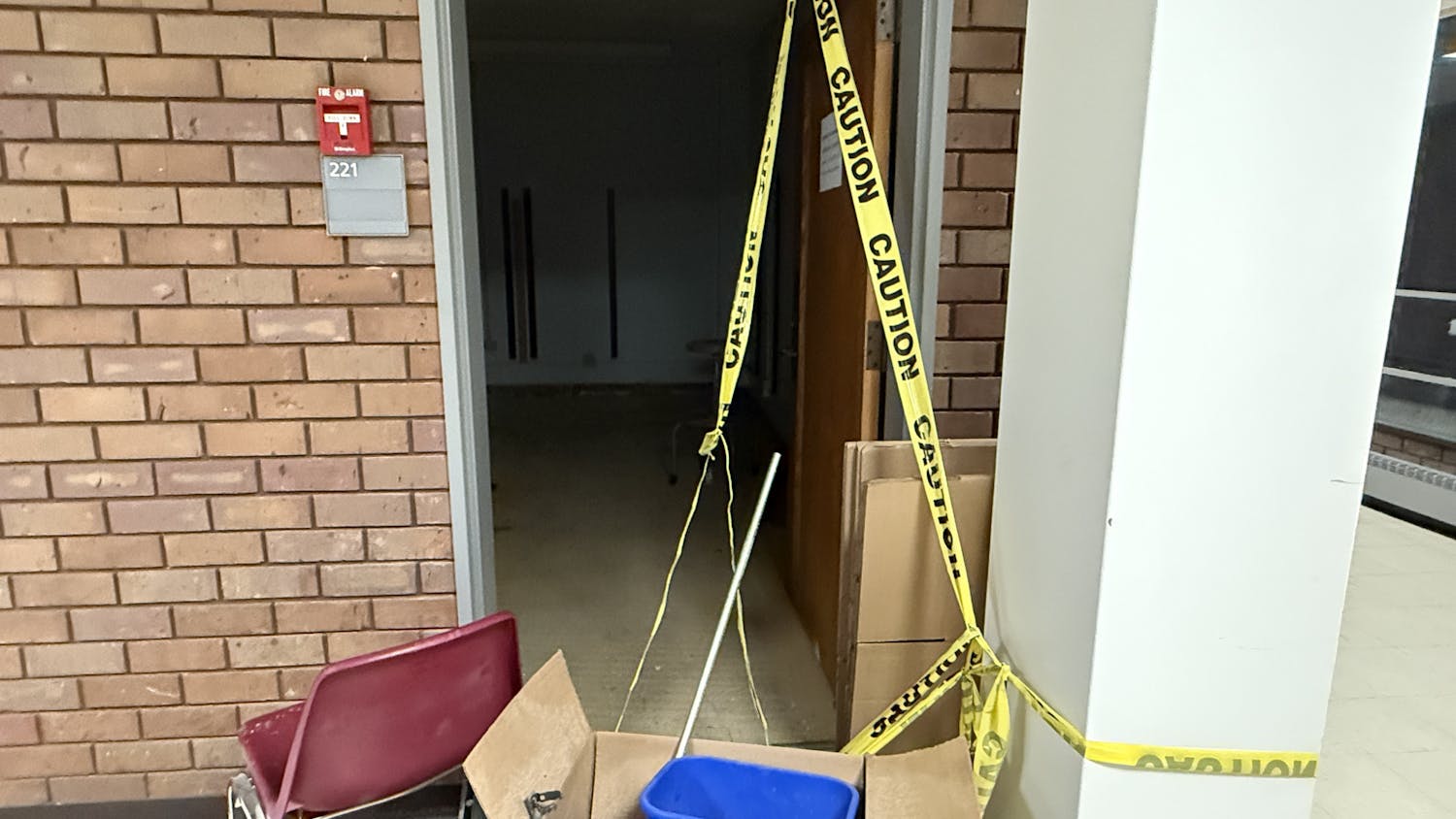In this year's Jessup Regional moot court competition in Chicago, Ill., SUNY Buffalo Law School's team made history by advancing to the semifinal round. UB won fourth place - its highest ranking since 2002.
Since its creation in 1960, the Jessup competition has been the world's largest international moot court competition - a mock court in which students argue fictional cases as practice for real-life cases. Over 500 law schools from over 80 countries compete every year, according to the International Law Students Association.
"The idea is to have law schools from all around the globe compete as though they were presenting a question of law before the International Court of Justice," said John Land, a UB competitor and law student. "The goal is to both foster international and legal ties between nations and to familiarize students with international [law], which is a particularly hairy-labeled field."
Kevin Espinosa and Michael Hecker, associates of Hodgson Russ Attorneys who graduated from UB Law School in 2009, coach the team. The competitors include Land, second-year law students Jessica Noto and Henry Zomerfeld, and third-year law students Michael Das and Jonathan Dominik.
This is the second time that Das and Dominik took part in the Jessup competition and the first for Noto, Land and Zomerfeld. The team competed from Feb. 1-3.
Hecker said this year was UB's best performance in the Jessup competition since 2002. This year, UB beat teams from Case Western Reserve University, Indiana University and the University of Illinois.
"We have been competitive, but this was the first time in several years - I believe since 2008 - that we made it to the quarterfinals of the Super Regional Round, let alone the semifinals," Hecker said.
After making it to the semi-finals, UB faced Loyola University Chicago and lost in a split decision, which is a rare event in Jessup competitions.
"At the time [in 2002], the competition itself was structured differently, so this is arguably the best the team has ever performed," Noto said in an email. "It is certainly the best the team has performed in the new format."
Noto said in addition to reaching the semifinals, the team's brief was ranked second overall and three of the team's oralists were ranked in the top 40 in the competition.
Dominik said this year's performance was an improvement over last year, when the team placed ninth overall in the regional competition. Placing ninth kept the team out of the eight-team quarterfinals.
Hecker said the team began preparation in October, spending three hours a week of classroom time training until early December. Preparation included time spent out of class researching international law and putting together a rough draft of the memorial, which is a written brief -approximately 35 to 40 pages - of legal research to support an argument.
The students submitted their memorial on Jan. 15 and started practicing oral arguments. They spent about three days a week, two-and-a-half hours per session, practicing oral debates.
Espinosa believes knowing the law and the facts of the problem, as well as putting in the necessary time to get ready for the debates, showed the team's superior preparation compared to other teams.
Zomerfeld discussed how the competition's problems this year focused on a variety of issues that included human rights, sovereign debt and the effect of rising sea levels on different nations. The relation these issues have to real-life national dilemmas exemplifies the significance of the Jessup competition.
"It is based in international law, which is interesting in of itself because it deals with current issues," Zomerfeld said. "We're dealing with the recent issue of Israel and Palestine, with Palestine getting recognized as a non-observing member state. All of these issues are current, and that makes it really interesting."
Zomerfeld said the Jessup competition helped him prepare for experiences in the courtroom after graduation.
"I definitely encourage law students to get involved," Zomerfeld said. "I particularly think moot court, especially Jessup and how it's structured, is helpful beyond any law student's understanding as to how it prepares for real-life practice."
Zomerfeld intends to get involved in prosecution in New York City, while Land expressed his interest in doing trial work for the Department of Justice after graduation, particularly prosecuting environmental crimes.
By preparing for the competition, Das learned how to be a fast talker, to think quickly and speak with confidence, which he said are necessary skills in the courtroom.
Noto said preparation for next year's competition will begin soon.
"We don't know what the issue will be for next season," Noto said. "However, a teaser should be released in a month or two that will give us an idea about what it will be."
Email: news@ubspectrum.com




